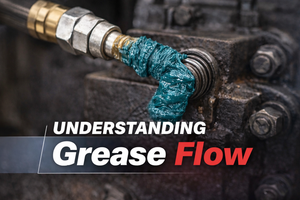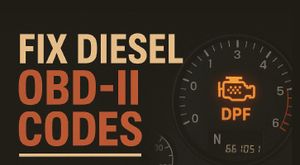Why "One-Fits-All" Transmission Fluids Put your Car at Risk
By on Jan 27 2025
Using the correct transmission fluid is essential for maintaining performance, preventing wear, and avoiding costly transmission failures, as different transmission types require specifically formulated fluids to function properly.
What Is a Transmission?
A vehicle's transmission is a critical component that ensures power from the engine is effectively transferred to the wheels. It converts engine power into torque—allowing the vehicle to accelerate, maintain speed, and adapt to different driving conditions. For example, starting from a stop requires significant torque, while cruising at highway speeds demands less. To balance these needs, transmissions utilize multiple gears to optimize performance and efficiency.
Different Types of Transmissions
Transmissions vary in design, function, and shifting mechanisms. The four main types include:
- Manual Transmissions (MT) – Require the driver to manually shift gears using a clutch.
- Automatic Transmissions (AT) – Shift gears automatically based on driving conditions.
- Continuously Variable Transmissions (CVT) – Use a belt or chain system for seamless gear ratio transitions.
- Dual-Clutch Transmissions (DCT) – Feature two clutches for faster and smoother gear changes, often found in high-performance and European vehicles.
Transmission Fluids: Why One Type Doesn’t Fit All

Each transmission type requires a specific fluid formulation to function properly. For manual transmissions, wear protection and synchronizer performance are essential, while automatic transmissions demand optimal friction control and anti-foam properties. Because these requirements can be conflicting, transmission fluids are carefully engineered for specific applications.
While multi-vehicle automatic transmission fluids (ATFs) exist to meet general industry standards, they often fall short of the performance provided by OEM-approved fluids designed for a particular transmission model. Using the correct fluid ensures peak efficiency, reduced wear, and long-term reliability.
The Consequences of Using the Wrong Transmission Fluid
Choosing the wrong transmission fluid can cause serious damage to your vehicle. Transmission fluids play a key role in cooling, lubrication, wear protection, and friction control during gear shifts. When the wrong fluid is used, these functions can be compromised, leading to:
- Hard or erratic shifting
- Shuddering or slipping
- Reduced acceleration and power loss
- Increased component wear
- Potential transmission failure
Some of the most severe failures occur when a standard automatic transmission fluid is used in a manual or dual-clutch transmission (common in AUDI, BMW, and VW models). These systems require specialized fluids with the correct wear protection and material compatibility—using an incompatible product can lead to premature failure.
Finding the Right Transmission Fluid with PSC
As an industry leader in lubricants and petroleum products, Petroleum Service Company offers an extensive selection of FUCHS products for all vehicle types, including automatic, manual, dual-clutch, and continuously variable transmissions. We help ensure that your transmission runs smoothly, efficiently, and for as long as possible.
Ensure you're using the correct fluid by browsing our selection of OEM-approved transmission fluids, or visit our FUCHS Oil Finder Tool to find the right match for your vehicle today!
This blog was originally authored by FUCHS Lubricants . Petroleum Service Company is proud to provide their products and support their high standards in transmission fluid solutions.






